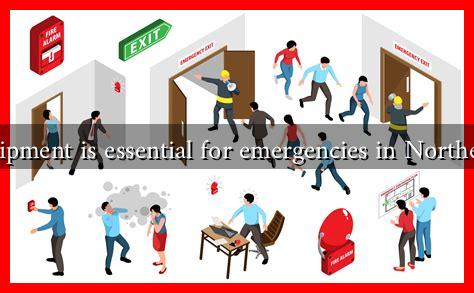-
Table of Contents
- What Safety Equipment is Essential for Emergencies in Northeast Ohio Today?
- Understanding the Risks in Northeast Ohio
- Essential Safety Equipment for Emergencies
- 1. Emergency Kit
- 2. Weather Radio
- 3. Fire Extinguisher
- 4. Personal Protective Equipment (PPE)
- 5.
. Home Safety Devices
- Case Studies and Statistics
- Conclusion
What Safety Equipment is Essential for Emergencies in Northeast Ohio Today?
Northeast Ohio is a region characterized by its diverse weather patterns, urban environments, and rural landscapes. From severe winter storms to tornadoes and flooding, the area is prone to various emergencies that can pose significant risks to residents. Being prepared with the right safety equipment is crucial for ensuring personal safety and minimizing damage during such events. This article explores the essential safety equipment needed for emergencies in Northeast Ohio today.
Understanding the Risks in Northeast Ohio
Before delving into the specific safety equipment, it is important to understand the types of emergencies that can occur in Northeast Ohio. The region experiences:
- Severe Winter Weather: Snowstorms and ice can lead to power outages and hazardous travel conditions.
- Severe Thunderstorms: These can produce high winds, hail, and even tornadoes.
- Flooding: Heavy rains can cause rivers and streams to overflow, leading to flash floods.
- Health Emergencies: Events like the COVID-19 pandemic highlight the need for personal protective equipment.
Essential Safety Equipment for Emergencies
To effectively prepare for these emergencies, residents of Northeast Ohio should consider the following essential safety equipment:
1. Emergency Kit
An emergency kit is a fundamental component of any preparedness plan. It should include:
- Non-perishable food and water (at least one gallon per person per day for three days)
- First aid supplies
- Flashlights and extra batteries
- A multi-tool or Swiss Army knife
- Whistle to signal for help
- Local maps
- Personal hygiene items
- Important documents (insurance policies, identification, etc.)
According to the Federal Emergency Management Agency (FEMA), having a well-stocked emergency kit can significantly increase your chances of staying safe during a disaster.
2. Weather Radio
A NOAA Weather Radio is essential for receiving real-time weather updates and emergency alerts. These radios can provide critical information about severe weather warnings, allowing residents to take timely action. Many models come with battery backup, ensuring they remain operational during power outages.
3. Fire Extinguisher
Fires can occur unexpectedly, making a fire extinguisher a vital piece of safety equipment. Residents should have at least one extinguisher on each level of their home, particularly in the kitchen and near heating sources. It’s important to choose the right type of extinguisher for different fire classes (A, B, C) and to ensure that it is regularly inspected and maintained.
4. Personal Protective Equipment (PPE)
In light of recent health emergencies, having personal protective equipment is crucial. This includes:
- Face masks
- Hand sanitizers
- Gloves
- Goggles or face shields
These items can help protect individuals from airborne pathogens and other health risks during emergencies.
5. Home Safety Devices
Smoke detectors and carbon monoxide detectors are essential for home safety. Regularly testing these devices and replacing batteries can save lives. In addition, having a fire escape ladder for multi-story homes can provide an additional layer of safety in case of a fire.
Case Studies and Statistics
According to the National Oceanic and Atmospheric Administration (NOAA), Ohio experiences an average of 15 tornadoes each year. In 2020, a severe storm system caused widespread damage across Northeast Ohio, leading to power outages for over 100,000 residents. Those who were prepared with emergency kits and weather radios reported feeling more secure during the crisis.
Furthermore, a study by the Ohio Department of Health found that communities with higher levels of preparedness were able to respond more effectively to health emergencies, such as the COVID-19 pandemic, reducing the spread of the virus.
Conclusion
In conclusion, being prepared for emergencies in Northeast Ohio requires a proactive approach to safety. By equipping homes with essential safety equipment such as emergency kits, weather radios, fire extinguishers, personal protective equipment, and home safety devices, residents can significantly enhance their preparedness for various emergencies. Understanding the risks and taking the necessary steps to mitigate them can make all the difference in ensuring safety and well-being during challenging times. For more information on emergency preparedness, visit Ready.gov.





